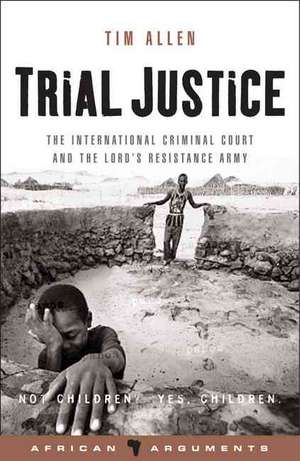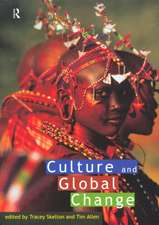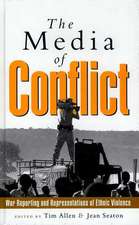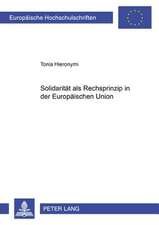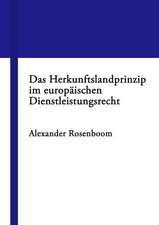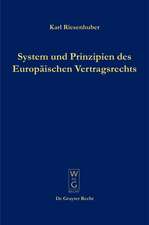Trial Justice: The International Criminal Court and the Lord's Resistance Army
Autor Tim Allenen Limba Engleză Paperback – 28 feb 2006
The
International
Criminal
Court
(ICC)
has
run
into
serious
problems
with
its
first
big
case
--
the
situation
in
northern
Uganda.
There is no doubt that appalling crimes have occurred here. Over a million people have been forced to live in overcrowded displacement camps under the control of the Ugandan army. Joseph Kony's Lord's Resistance Army has abducted thousands, many of them children and has systematically tortured, raped, maimed and killed. Nevertheless, the ICC has confronted outright hostility from a wide range of groups, including traditional leaders, representatives of the Christian Churches and non-governmental organizations. Even the Ugandan government, which invited the court to become involved, has been expressing serious reservations.
Tim Allen assesses the controversy. While recognizing the difficulties involved, he shows that much of the antipathy towards the ICC's intervention is misplaced. He also draws out important wider implications of what has happened. Criminal justice sets limits to compromise and undermines established procedures of negotiation with perpetrators of violence. Events in Uganda have far reaching implications for other war zones - and not only in Africa. Amnesties and peace talks may never be quite the same again.
There is no doubt that appalling crimes have occurred here. Over a million people have been forced to live in overcrowded displacement camps under the control of the Ugandan army. Joseph Kony's Lord's Resistance Army has abducted thousands, many of them children and has systematically tortured, raped, maimed and killed. Nevertheless, the ICC has confronted outright hostility from a wide range of groups, including traditional leaders, representatives of the Christian Churches and non-governmental organizations. Even the Ugandan government, which invited the court to become involved, has been expressing serious reservations.
Tim Allen assesses the controversy. While recognizing the difficulties involved, he shows that much of the antipathy towards the ICC's intervention is misplaced. He also draws out important wider implications of what has happened. Criminal justice sets limits to compromise and undermines established procedures of negotiation with perpetrators of violence. Events in Uganda have far reaching implications for other war zones - and not only in Africa. Amnesties and peace talks may never be quite the same again.
| Toate formatele și edițiile | Preț | Express |
|---|---|---|
| Paperback (1) | 145.64 lei 6-8 săpt. | |
| ZED BOOKS – 28 feb 2006 | 145.64 lei 6-8 săpt. | |
| Hardback (1) | 507.97 lei 6-8 săpt. | |
| ZED BOOKS – 28 feb 2006 | 507.97 lei 6-8 săpt. |
Preț: 145.64 lei
Preț vechi: 189.42 lei
-23% Nou
Puncte Express: 218
Preț estimativ în valută:
27.87€ • 28.93$ • 23.24£
27.87€ • 28.93$ • 23.24£
Carte tipărită la comandă
Livrare economică 22 martie-05 aprilie
Preluare comenzi: 021 569.72.76
Specificații
ISBN-13: 9781842777374
ISBN-10: 1842777378
Pagini: 256
Dimensiuni: 138 x 216 x 18 mm
Greutate: 0.28 kg
Editura: ZED BOOKS
Colecția Zed Books
Locul publicării:London, United Kingdom
ISBN-10: 1842777378
Pagini: 256
Dimensiuni: 138 x 216 x 18 mm
Greutate: 0.28 kg
Editura: ZED BOOKS
Colecția Zed Books
Locul publicării:London, United Kingdom
Cuprins
1:
Introduction:
Ending
Impunity
International Law and the Most Serious Crimes
A Resurgence of International Criminal Trials
The Creation of the ICC
2. The Coming of the Lord's Resistance Army
Political Upheavals, Spirituality and Guerrilla War
Joseph Kony and the LRA
War and Counter-Insurgency Strategies
3. Displacement and Abduction
Living in IDP Camps
Living with the Lord's Resistance Army
Some Experiences of Abduction
4. Amnesty, Peace Talks, and Prosecution
The Change in Political Context
The Amnesty Act
Reactions to the ICC in Uganda
Legal Aspects of the ICC Intervention
5. Concerns about the Court
The ICC is Biased
Assessment of the Evidence
The ICC Exacerbates the Violence and Endangers Vulnerable Groups
Assessment of the Evidence
The ICC is Spoiling the Peace Process
Assessment of the Evidence
6. Justice and Healing
Institutionalization of 'Mato oput'
A Diversity of Local Views
Chiefs, Churches and Spirits
The Evidence on Healing and Justice
7. Conclusion: A Learning Process
Notes
References
Index
International Law and the Most Serious Crimes
A Resurgence of International Criminal Trials
The Creation of the ICC
2. The Coming of the Lord's Resistance Army
Political Upheavals, Spirituality and Guerrilla War
Joseph Kony and the LRA
War and Counter-Insurgency Strategies
3. Displacement and Abduction
Living in IDP Camps
Living with the Lord's Resistance Army
Some Experiences of Abduction
4. Amnesty, Peace Talks, and Prosecution
The Change in Political Context
The Amnesty Act
Reactions to the ICC in Uganda
Legal Aspects of the ICC Intervention
5. Concerns about the Court
The ICC is Biased
Assessment of the Evidence
The ICC Exacerbates the Violence and Endangers Vulnerable Groups
Assessment of the Evidence
The ICC is Spoiling the Peace Process
Assessment of the Evidence
6. Justice and Healing
Institutionalization of 'Mato oput'
A Diversity of Local Views
Chiefs, Churches and Spirits
The Evidence on Healing and Justice
7. Conclusion: A Learning Process
Notes
References
Index
Descriere
Descriere de la o altă ediție sau format:
The International Criminal Court has run into serious problems with its first big case - the situation in northern Uganda. This book argues that much of the antipathy to the ICC is based upon ignorance and misconception and that the ICC has made resolution of the war more likely.
The International Criminal Court has run into serious problems with its first big case - the situation in northern Uganda. This book argues that much of the antipathy to the ICC is based upon ignorance and misconception and that the ICC has made resolution of the war more likely.
